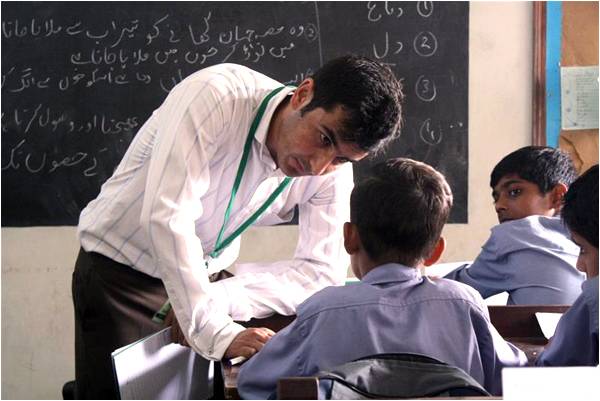
Much more than lamenting the lack of implementation of laws in Pakistan, it is important to educate common citizens on the laws that do protect them and making sure that these are enforced via petitioning the courts. If you’re an automobile driver who thinks your boss is being unfair to you, your rights are protected under relevant labour laws and you can approach a labour forum to have them enforced to your benefit.
Enactment of laws and their enforcement is particularly firm as far as the labour sector of Pakistan is concerned with very strong legislation at the federal and provincial level. For the enforcement of these legislations we have labour courts and the NIRC. Both forums are petitioned by workers every day and relief is actually provided to them. The labour laws in Pakistan cover a wide variety of issues such as holidays, overtime, mode of termination, compensation in case of injury, maternity benefits, old age benefits and working hours. There is a catch however. All these rights are in the main available to “workmen”. Workmen in labour law are defined as people employed to do skilled or unskilled, manual or clerical work. Case law further defines “workmen” as persons who simply follow orders, who are not in a supervisory capacity and are only supervised. Common examples are chauffeurs and receptionists. Rights of persons who do not fall in the category of workmen are governed by the terms and conditions of their contracts.

[quote]Their wages, holidays, working hours and over-time leaves a lot to be desired[/quote]
This is beneficial for “workmen” whose rights are guaranteed under the labour laws as well as for those who have lucrative contracts and it doesn’t matter whether they be categorized as “workmen”, since they are already getting considerable benefits under their contracts. What happens then to those not categorized as workmen and who neither have favourable benefits granted to them under their contracts? What happens to, for example, the rights of teachers?
Teachers in Pakistan, particularly those teaching at the primary and secondary level do not have many benefits granted to them under their contracts. Their wages, holidays, working hours and over-time leaves a lot to be desired, particularly considering the fact that they are pillars upon which a new society is built. They are terminated at will with no post-termination benefits, a perfectly legal act since their contracts do not state otherwise.
While researching the topic I doscovered that there are private schools in Islamabad which do not issue contracts to teachers. Ayesha, a primary teacher in a private school in Islamabad has filed a civil suit against the school administration for wrongful termination. Ayesha’s only fault was that she demanded overtime from the school administration for asking her to come on three consecutive weekly holidays. Ayesha, to her dismay, has now realized that she was never given any contract, she has however filed for a mandatory injunction in the civil courts in Islamabad. The legal process for her as already taken around seven months with no relief in the immediate future.
Government employed teachers have recourse to the Services Tribunal Act 1973 which is a law that essentially safeguards the rights of civil servants. What recourse is then available to teachers in private schools? Are teachers ‘workmen’? Unfortunately, case law in Pakistan does not classify teachers as workmen. There have been instances where teachers have approached labour courts to challenge their termination or the non-availability of benefits guaranteed to workmen, only to be told that since teachers apply their intellectual capacity in teaching, they cannot be categorized as workmen and are thus not entitled to any of the same benefits.

Another way in which teachers are disadvantaged are through rulings of labour courts which state that labour law applies to “Commercial and Industrial Establishments” only, and that schools do not fall under the category of Commercial and Industrial Establishments. These rulings basically deprive private school teachers of their rights to all-purpose leaves, maternity leaves, retirement benefits and proper termination. Rehan, a physical instructor teacher in a local school in Islamabad has approached the civil courts in Islamabad to challenge his wrongful termination. Rehan had been demanding an increase in pay. However, instead of giving him a raise the school administration one day summarily dismissed him. Rehan remains optimistic about being reinstated in his job.
Whereas teaching is like any other job, on the other hand, it is also like no other job. Teachers, like other professionals, require job security and job satisfaction to be able to function to their maximum potential. It is of utmost importance that teachers be able to function to their maximum capability. Satisfaction of a teacher with his job would ensure concentration on the proper training and education of students, something as important as the right currciula and the elimination of ghost schools.
However, all is not bleak. The Industrial Relations act 2012 and identical provincial acts are labour laws which effectively allow employees to lodge their grievances against their employers before the National Industrial Relations Commission. Industrial Relations Act 2012 and identical provincial acts define industry as including any business, trade, calling, employment or occupation for production of goods or provision of services in the ICT and/or the provinces, excluding those set up exclusively for charitable purposes. Since most private schools in Pakistan are commercial concerns, approaching the NIRC should work.
[quote]A separate law governing the rights of teachers would go a long way in ensuring that they provide their best[/quote]
Nonetheless, a separate law governing the rights of teachers would go a long way in ensuring that they provide their best while teaching the future generations of the country. For a nation which likes to make laws, regulations for safeguarding the rights of teachers is perhaps one of the most important law which needs to be put into place. For now teachers such as Ayesha and Rehan have to contend with the tedious process of expecting relief through civil courts which already have a tremendous back log of cases.
The writer is a practicing advocate of the High Court and can be reached at: yousaf@yaa.com.pk
Enactment of laws and their enforcement is particularly firm as far as the labour sector of Pakistan is concerned with very strong legislation at the federal and provincial level. For the enforcement of these legislations we have labour courts and the NIRC. Both forums are petitioned by workers every day and relief is actually provided to them. The labour laws in Pakistan cover a wide variety of issues such as holidays, overtime, mode of termination, compensation in case of injury, maternity benefits, old age benefits and working hours. There is a catch however. All these rights are in the main available to “workmen”. Workmen in labour law are defined as people employed to do skilled or unskilled, manual or clerical work. Case law further defines “workmen” as persons who simply follow orders, who are not in a supervisory capacity and are only supervised. Common examples are chauffeurs and receptionists. Rights of persons who do not fall in the category of workmen are governed by the terms and conditions of their contracts.

[quote]Their wages, holidays, working hours and over-time leaves a lot to be desired[/quote]
This is beneficial for “workmen” whose rights are guaranteed under the labour laws as well as for those who have lucrative contracts and it doesn’t matter whether they be categorized as “workmen”, since they are already getting considerable benefits under their contracts. What happens then to those not categorized as workmen and who neither have favourable benefits granted to them under their contracts? What happens to, for example, the rights of teachers?
Teachers in Pakistan, particularly those teaching at the primary and secondary level do not have many benefits granted to them under their contracts. Their wages, holidays, working hours and over-time leaves a lot to be desired, particularly considering the fact that they are pillars upon which a new society is built. They are terminated at will with no post-termination benefits, a perfectly legal act since their contracts do not state otherwise.
While researching the topic I doscovered that there are private schools in Islamabad which do not issue contracts to teachers. Ayesha, a primary teacher in a private school in Islamabad has filed a civil suit against the school administration for wrongful termination. Ayesha’s only fault was that she demanded overtime from the school administration for asking her to come on three consecutive weekly holidays. Ayesha, to her dismay, has now realized that she was never given any contract, she has however filed for a mandatory injunction in the civil courts in Islamabad. The legal process for her as already taken around seven months with no relief in the immediate future.
Government employed teachers have recourse to the Services Tribunal Act 1973 which is a law that essentially safeguards the rights of civil servants. What recourse is then available to teachers in private schools? Are teachers ‘workmen’? Unfortunately, case law in Pakistan does not classify teachers as workmen. There have been instances where teachers have approached labour courts to challenge their termination or the non-availability of benefits guaranteed to workmen, only to be told that since teachers apply their intellectual capacity in teaching, they cannot be categorized as workmen and are thus not entitled to any of the same benefits.

Another way in which teachers are disadvantaged are through rulings of labour courts which state that labour law applies to “Commercial and Industrial Establishments” only, and that schools do not fall under the category of Commercial and Industrial Establishments. These rulings basically deprive private school teachers of their rights to all-purpose leaves, maternity leaves, retirement benefits and proper termination. Rehan, a physical instructor teacher in a local school in Islamabad has approached the civil courts in Islamabad to challenge his wrongful termination. Rehan had been demanding an increase in pay. However, instead of giving him a raise the school administration one day summarily dismissed him. Rehan remains optimistic about being reinstated in his job.
Whereas teaching is like any other job, on the other hand, it is also like no other job. Teachers, like other professionals, require job security and job satisfaction to be able to function to their maximum potential. It is of utmost importance that teachers be able to function to their maximum capability. Satisfaction of a teacher with his job would ensure concentration on the proper training and education of students, something as important as the right currciula and the elimination of ghost schools.
However, all is not bleak. The Industrial Relations act 2012 and identical provincial acts are labour laws which effectively allow employees to lodge their grievances against their employers before the National Industrial Relations Commission. Industrial Relations Act 2012 and identical provincial acts define industry as including any business, trade, calling, employment or occupation for production of goods or provision of services in the ICT and/or the provinces, excluding those set up exclusively for charitable purposes. Since most private schools in Pakistan are commercial concerns, approaching the NIRC should work.
[quote]A separate law governing the rights of teachers would go a long way in ensuring that they provide their best[/quote]
Nonetheless, a separate law governing the rights of teachers would go a long way in ensuring that they provide their best while teaching the future generations of the country. For a nation which likes to make laws, regulations for safeguarding the rights of teachers is perhaps one of the most important law which needs to be put into place. For now teachers such as Ayesha and Rehan have to contend with the tedious process of expecting relief through civil courts which already have a tremendous back log of cases.
The writer is a practicing advocate of the High Court and can be reached at: yousaf@yaa.com.pk

